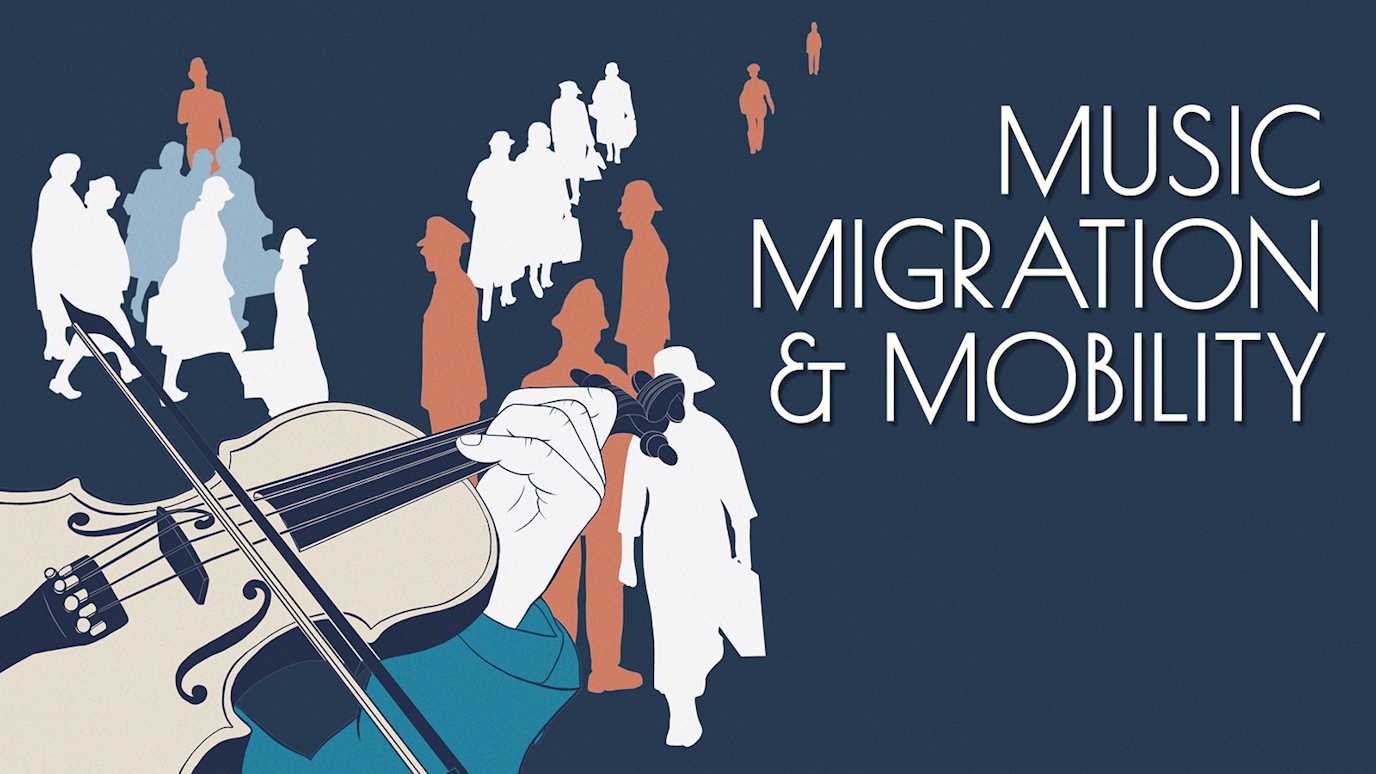Royal Holloway has partnered with the Royal College of Music (RCM) Museum to create a new exhibition called Music, Migration & Mobility – The Story of Émigré Musicians from Nazi-Europe in Britain.

Image credit Giada Peterle
The free exhibition opens at the RCM Museum on 17 January and will run until 16 April 2023. It was funded by the Arts and Humanities Research Council (AHRC) as part of the Music, Migration and Mobility project – a collaboration between researchers from Royal Holloway and the Centre for the Geohumanities, the RCM, and the University of Salzburg.
It will look at how many of the most influential figures in post-war British musical life were émigrés, forced to leave their homelands as a direct result of the rise of the Nazi regime.
From Jewish musicians who were removed from their posts to political opponents escaping retribution, many found a new home in Britain. Often, these individuals would eventually go on to greatly enrich its cultural life.
First-hand reflections are woven throughout the exhibition, introducing visitors to the musicians’ migratory journeys, motivations, experiences and their impact on wider British culture.
It begins with an exploration of why musicians fled and delves into their difficult journeys – or mobilities – which are illustrated by personal testimonies and possessions.
It goes on to look at the challenges they faced once in Britain and the impact of being removed and transported for internment.
Locations such as Mooragh Camp on the Isle of Man saw many musicians grouped together, allowing a creative atmosphere to flourish in spite of their lack of freedom. Makeshift posters and programmes created within the camps are displayed alongside photos, letters and poetry giving insights into how creative networks developed, even during the most challenging times.
Visitors are then transported to the now-iconic Glyndebourne. Glyndebourne's early success was largely thanks to émigrés, such as Fritz Busch and Carl Ebert, who promoted the employment of those who fled. Newspaper clippings illustrate the debates taking place in post-war Britain. Here, costumes and backstage photos invite visitors into the world of the migrant musicians and their work.
The exhibition continues, examining the chamber musicians such as the Amadeus Quartet and their broader cultural contribution. Memorabilia from their first concert at Wigmore Hall, portraits by the artist Milein Cosman and letters all demonstrate their influence.
The final sections explore émigré musicians as founders, educators and cultural figures. Objects including instruments, books, photographs and programmes give insights into the lives of those who remained in Britain after the war.
The exhibition has been curated by Norbert Meyn of the RCM, researcher and project lead, and Dr Michael Holden, from the Department of Geography and Centre for the Geohumanities at Royal Holloway.
Dr Holden said: “We are thrilled to have produced this exhibition with The Royal College of Music Museum.
“It is wonderful to be able to present the results of our research to a wider public audience, and we hope that people will enjoy engaging with the themes of the exhibition, and that it might encourage people to think about classical music in terms of migration and movement. The cultural life created by these émigrés in the mid-twentieth century deserves to be more widely known.”
Norbert Meyn added: “In telling the stories of just some of the musicians who settled in Britain during the mid-20th century, we hope to explore not just individual experiences, but also the far-reaching impact of migration on culture at large.
“Music moves when people move and just as traditions, skills, ideas and indeed objects get passed on from one generation to another, so does the impact of musicians’ migration during this period.”
The Music, Migration and Mobility exhibition is one of many outputs of the AHRC-funded Music, Migration and Mobility research project.
It brings together an international team of musicians and researchers for one of the biggest musicological research projects at the Royal College of Music to date.
At Royal Holloway, the project is anchored within the Department of Geography and the Centre for the Geohumanities with project co-investigator Professor Peter Adey and Dr Michael Holden. Several project outputs, including storymaps, are available on the project’s educational resource.
The RCM Museum is open Tuesday to Friday, 10.15am to 5.45pm and Saturday to Sunday, 11am to 6pm. Entry to the exhibition is free and can be booked online.
























